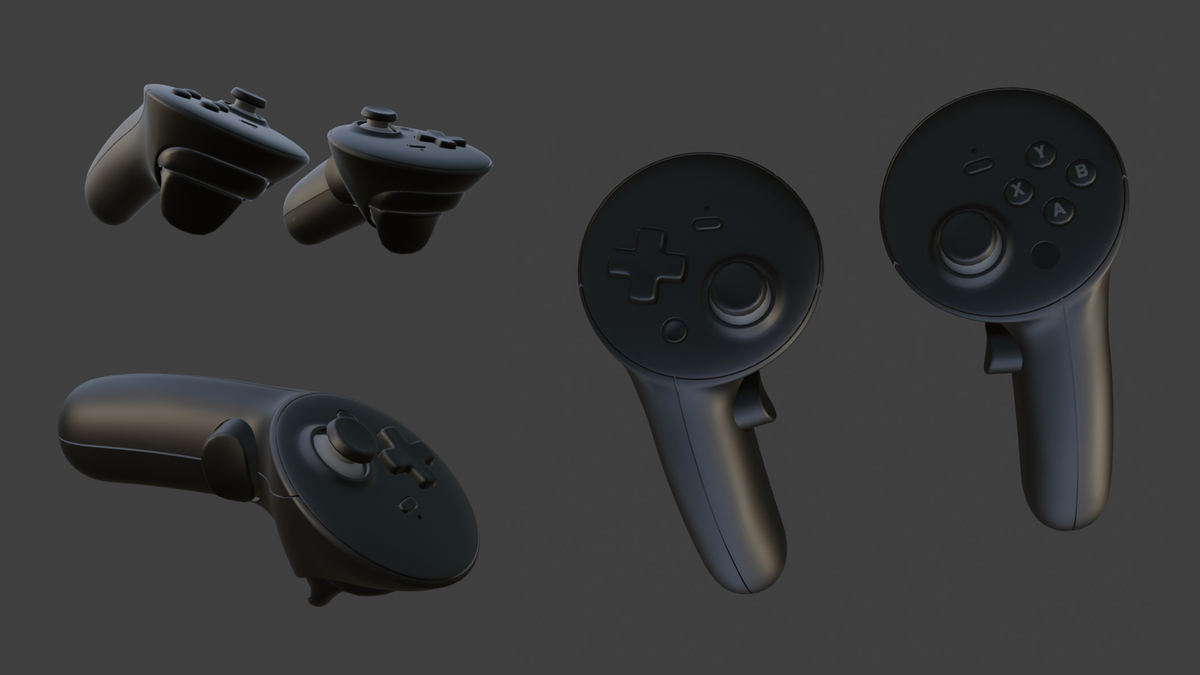
Models of Valve Deckard’s ‘Roy’ controllers have been discovered in SteamVR driver files, revealing their design and inputs.
Code references to Valve ‘Roy’ controllers were first discovered earlier this month by XR enthusiast Brad Lynch’s Discord group of SteamVR dataminers. This code revealed that the controllers would include bumpers and a D-pad to be able to act as a gamepad for flatscreen gaming.
Now, the same group have discovered 3D models of Roy, revealing its design and confirming the inclusion of bumpers and a D-pad, as well as thumbsticks, buttons, index triggers, grip triggers, and system buttons.
Roy is almost certainly a reference to the antagonist of the movie Blade Runner, matching the apparent codename of the headset, Deckard, the protagonist.
Progression of Valve Deckard’s Roy controllers from prototype to mass production tooling (EV1 at least) pic.twitter.com/66VLcu5GuG
— Brad Lynch (@SadlyItsBradley) November 26, 2024
The latest version of the Roy controller models show a ringless design, but the dataminers also discovered earlier versions with rings that resemble the original Oculus Quest controllers. These earlier designs seemingly first appeared in a 2022 Valve patent.
The findings suggest Valve is finally getting close to launching its next headset, almost six years after the release of Index. But what kind of headset will Deckard be?
The Roy controller design and a 2022 Valve job listing strongly suggest it will use computer vision tracking from cameras on the headset, lowering cost and removing the need for base stations. The inclusion of bumpers and a D-pad also suggests it will have a strong focus on playing flatscreen Steam games on a virtual screen. And in November last year Valve strongly hinted that the headset would focus on wirelessly streaming Steam content from your PC, something that previous datamining suggested too.
But will Deckard be a premium product for enthusiasts, like Index was, or an aggressively priced competitor for Meta’s Quest headsets? In an era where Valve’s Steam Link app already turns Quests into low friction wireless SteamVR headsets for free, the former seems more likely. But then again, Steam Deck shows Valve can have an appetite for subsidized hardware too, when it wants to.
Rendermodels compared:
Valve Index vs Valve Roy vs Meta Quest 3 controller
(Thanks @Kozumiuk2) pic.twitter.com/2t6AeuoJUy
— Brad Lynch (@SadlyItsBradley) November 27, 2024
We’ll continue to keep a close eye on the community of SteamVR dataminers in the coming months for any further hints at what Valve might be cooking up.

